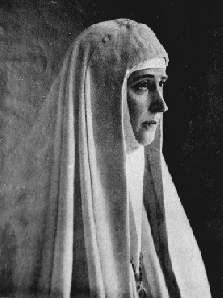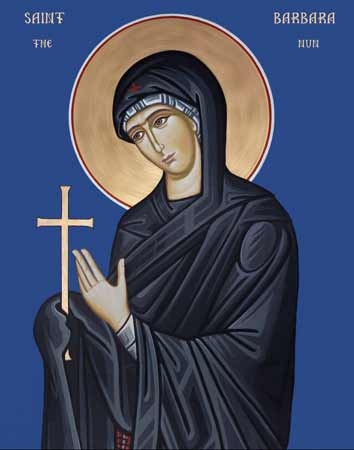|
|||
|---|---|---|---|
| This weekly bulletin insert complements the curriculum published by the Department of Christian Education of the Orthodox Church in America. This and many other Christian Education resources are available at http://dce.oca.org. | |||

In I Corinthians 1:10-18 Saint Paul advises the Christians in Corinth to "be united in the same mind and the same judgment." Paul is addressing a problem of factions in the Corinthian church. Believers there, when they disagreed with each other, had begun grouping themselves behind one person—Apollos, Cephas, Paul himself—or declaring themselves to belong only "to Christ" as a way of distancing themselves from the whole problem. Paul expresses his indignation by saying, "Is Christ divided? Was Paul crucified for you?" The Church honors two martyr saints, women who maintained the "same mind and the same judgment" in the face of the harshest suffering. They are the nun martyr Elizabeth, Grand Duchess of Russia, and her cell attendant, the nun Barbara. When Saint Elizabeth established the Martha and Mary Convent in Moscow in 1905, Barbara Yakovleva, who had been her maid, soon joined as a monastic. Small in stature but capable and energetic, she gave herself wholeheartedly to the monastery's work. The sisters, with Saint Elizabeth as their abbess, ran a small hospital and an orphanage, cared for tuberculosis patients and the very poor, and went into the city to comfort and minister to the needy. By 1914, the monastery had 97 nuns, both aristocrats and commoners. Strengthened by their rule of prayer and worship, they expanded their work, sustaining many desperate people in the terrible slums of Moscow. They also invited poor, exhausted shopgirls to gatherings at the monastery, treating the young women as honored guests. But innocent people doing needed work that threatened nobody wouldn't escape the revolutionary madness that had seized Russia. On Bright Tuesday in 1918, the Bolsheviks arrested Grand Duchess Elizabeth, nun Barbara, and another nun named Catherine. They were taken by train to the town of Alapaevsk, where they were confined in a school building. The women spent their days working in a garden, taking brief walks, and praying intensely, always under the strict surveillance of rough guards who enjoyed imposing more and more privations on them. Barbara and Catherine were taken to another town. Their brutish captors replied to their tearful pleadings to be reunited with the abbess by refusing Catherine's request completely and telling Barbara, "You can be with that other nun if you sign an agreement to die with her." 
Saint Barbara and Saint Elizabeth were indeed of one mind and one judgment. Elizabeth, offered sanctuary by other European royals, had refused to abandon Russia and the Orthodox faith. Barbara would also be true to her faith, and to her friend. She replied, "I agree to give you the requested signature, not only in ink, but if necessary in my own blood." The words of the verses in I Corinthians reflect the difference between Barbara and the astounded captors who expected her to save her own life: "For the word of the cross is folly to those who are perishing, but to us who are being saved it is the power of God." |
|||
